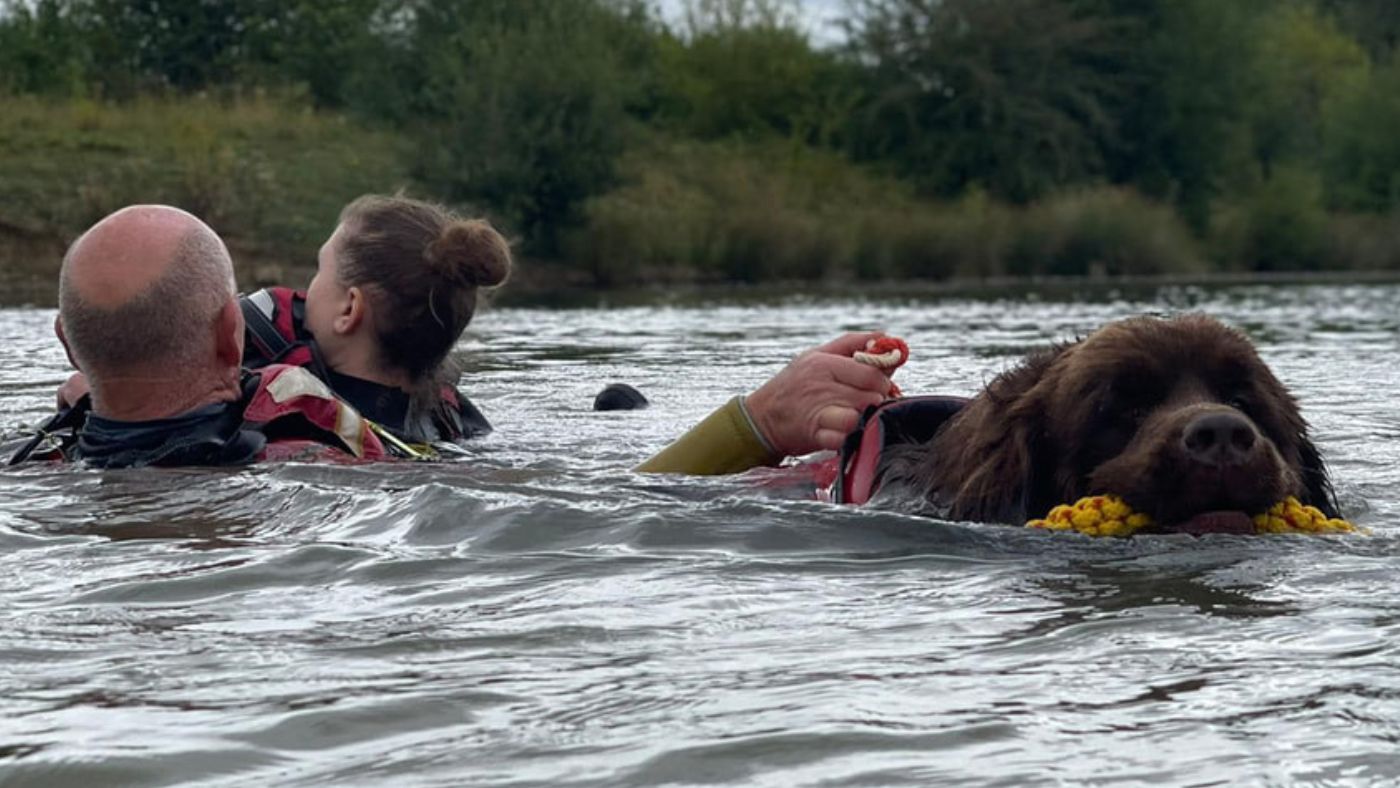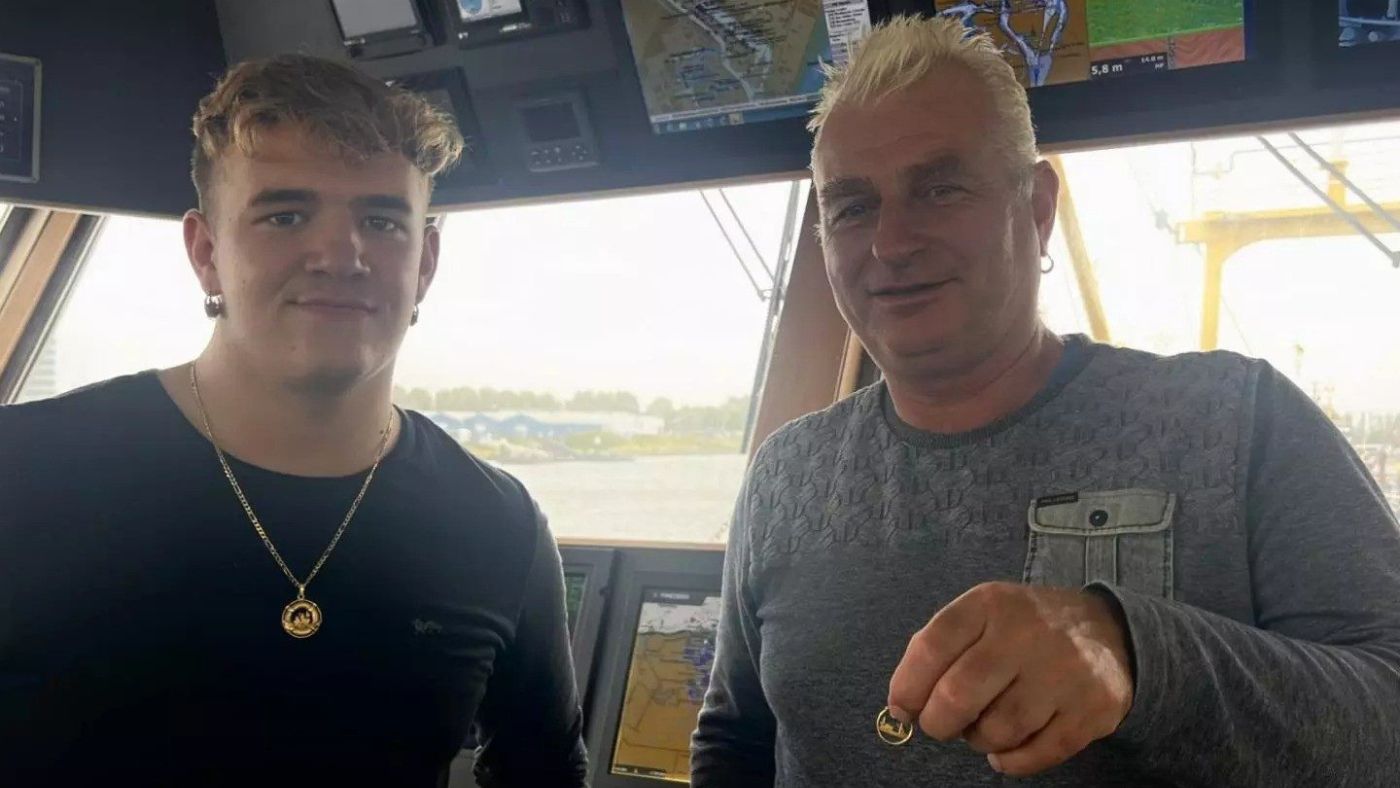The week's good news: June 24, 2021
It wasn't all bad!


- 1. Teen buys contents of repossessed storage units, then returns everything to the original owners
- 2. Wisconsin dad breaks world record for most pushups done in a year
- 3. Italian journalist reporting on missing toddler finds the boy
- 4. 'The Good News Guy' aims to help people focus on the positive
- 5. Study: Drinking coffee cuts risk of liver problems
A free daily email with the biggest news stories of the day – and the best features from TheWeek.com
You are now subscribed
Your newsletter sign-up was successful
1. Teen buys contents of repossessed storage units, then returns everything to the original owners
Shane Jones thought he was about to embark on a treasure hunt, but it turned into something so much more. Last summer, the 16-year-old from Providence, Rhode Island, got the idea to bid on storage units that had been repossessed after people were unable to pay their rent. "It seemed like something fun to do," Jones told The Washington Post. His $100 bid was a winner, but once he started going through the contents of the storage unit, Jones was startled. He saw that there were clearly personal items that had meant something to the previous owner and "realized then that this wasn't the same as getting stuff at a yard sale." He tracked down the renter's mother, and returned the possessions to her. He has since reunited more families with their items, and doesn't plan on stopping. "They didn't choose to give me this stuff," Jones said. "They didn't have a choice. It's almost like a duty to give it back."
2. Wisconsin dad breaks world record for most pushups done in a year
Over the last year, it didn't matter what Nate Carroll was doing — he'd drop and start doing pushups. Carroll, 45, is a social worker in Wisconsin. Wanting to raise money for the Tunnels to Towers Foundation, which helps the families of first responders who died in the line of duty, he decided on June 14, 2020, that he would break the world record for most pushups done in a year. The record was set by British athlete Paddy Doyle in October 1989, and earlier this month, Carroll appeared to shatter it when he finished his 1,500,231st pushup (the Guinness Book of World Records is working to verify the number). Carroll told The Wisconsin State Journal that he had to balance work, being a dad, and hitting his pushup goal, but he made breaking the record "a priority" because it was important to bring attention to Tunnels to Towers.
The Week
Escape your echo chamber. Get the facts behind the news, plus analysis from multiple perspectives.

Sign up for The Week's Free Newsletters
From our morning news briefing to a weekly Good News Newsletter, get the best of The Week delivered directly to your inbox.
From our morning news briefing to a weekly Good News Newsletter, get the best of The Week delivered directly to your inbox.
3. Italian journalist reporting on missing toddler finds the boy
A missing Italian toddler wasn't found by one of the 1,000 people searching for him — he was discovered by a journalist sent to report on the case. The 21-month-old was last seen by his parents on Monday, and on Wednesday, reporter Giuseppe Di Tommaso with the Italian state broadcaster Rai went to interview them. They live in an isolated area near Florence, and Di Tommaso had to walk up a long dirt road to get to their house. Along the way, he heard a noise coming from a ravine, and called out. A child replied "Mama," and Di Tommaso could see through the brush that there was a boy in the ravine. It was the missing toddler, with a few scratches and a bump on his head. He was found about a mile from home, and police believe he woke up in the middle of the night and let himself out of the house.
4. 'The Good News Guy' aims to help people focus on the positive
Hal Urban finds the good wherever he goes — and he wants you to do the same thing. Urban, 80, is an author and retired social studies teacher who was dubbed "The Good News Guy" by his students many years ago, after he taught them how to find uplifting stories in the press. Since then, Urban has written eight books about looking on the bright side, with the proceeds going to educational organizations. His latest, The Power of Good News, helps people focus on the positive. "A lot of people need to retrain their brain to increase their awareness of how much good there is around them," he told ABC 6 News. "That good could be physical comforts, that good could be opportunities that they have every day, that good could be great people in their lives who bring out the best in them."
A free daily email with the biggest news stories of the day – and the best features from TheWeek.com
5. Study: Drinking coffee cuts risk of liver problems
Coffee drinkers, fill up that mug. A new study published Monday in the journal BMC Public Health found that drinking up to three or four cups of coffee — caffeinated or decaffeinated — a day cuts the risk of developing and dying from chronic liver diseases, CNN reports. For the study, researchers followed 494,585 participants for nearly 12 years. They determined that coffee drinkers were 21 percent less likely to develop chronic liver disease, 20 percent less likely to develop chronic or fatty liver disease, and 49 percent less likely to die from chronic liver disease than those who do not drink coffee. The researchers found that the most benefit came from drinking ground (as opposed to instant) caffeinated or decaf coffee. "Coffee is widely accessible, and the benefits we see from our study may mean it could offer a potential preventative treatment for chronic liver disease," study author Dr. Oliver Kennedy of Britain's University of Southampton said in a statement.
Catherine Garcia has worked as a senior writer at The Week since 2014. Her writing and reporting have appeared in Entertainment Weekly, The New York Times, Wirecutter, NBC News and "The Book of Jezebel," among others. She's a graduate of the University of Redlands and the Columbia University Graduate School of Journalism.
-
 Political cartoons for February 16
Political cartoons for February 16Cartoons Monday’s political cartoons include President's Day, a valentine from the Epstein files, and more
-
 Regent Hong Kong: a tranquil haven with a prime waterfront spot
Regent Hong Kong: a tranquil haven with a prime waterfront spotThe Week Recommends The trendy hotel recently underwent an extensive two-year revamp
-
 The problem with diagnosing profound autism
The problem with diagnosing profound autismThe Explainer Experts are reconsidering the idea of autism as a spectrum, which could impact diagnoses and policy making for the condition
-
 The week's good news: Sept. 21, 2023
The week's good news: Sept. 21, 2023It wasn't all bad!
-
 The week's good news: Sept. 14, 2023
The week's good news: Sept. 14, 2023It wasn't all bad!
-
 The week's good news: Sept. 7, 2023
The week's good news: Sept. 7, 2023feature It wasn't all bad!
-
 Lives transformed by swimming with Newfoundland dogs
Lives transformed by swimming with Newfoundland dogsfeature Good news stories from the past seven days
-
 The week's good news: August 31, 2023
The week's good news: August 31, 2023feature It wasn't all bad!
-
 The week's good news: August 17, 2023
The week's good news: August 17, 2023feature It wasn't all bad!
-
 Earring lost at sea returned to fisherman after 23 years
Earring lost at sea returned to fisherman after 23 yearsfeature Good news stories from the past seven days
-
 Farmer plants 1.2m sunflowers as present for his wife
Farmer plants 1.2m sunflowers as present for his wifefeature Good news stories from the past seven days
